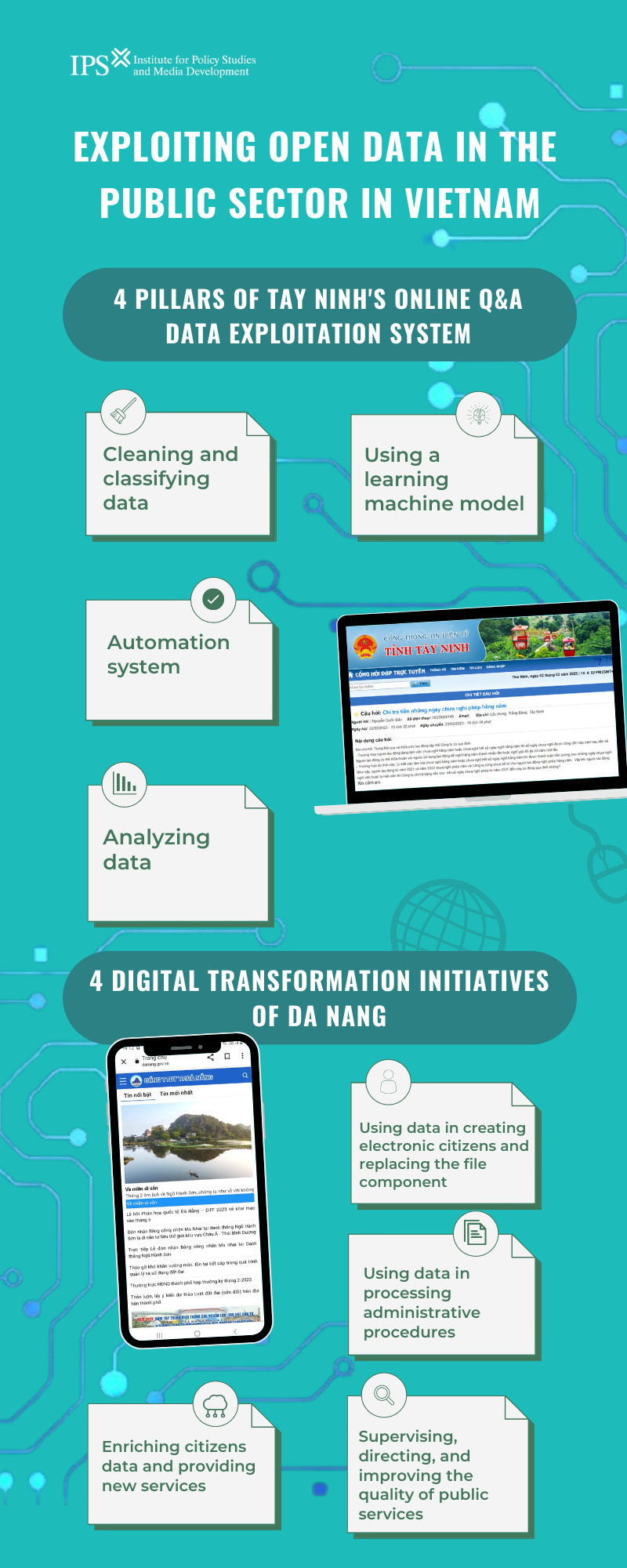In addition to its benefits in the economic, commercial, or education fields, open data is one important factor in the process of transitioning from e-government to digital government in Vietnam. Open data also has major impacts on state management, enhances transparency and accountability, and promotes the participation of citizens and enterprises in state management activities.
Current state of data exploitation of public sector in Vietnam
During the Preliminary conference on the one-year implementation of the Scheme 06 and summarizing the activities of the National Committee on digital transformation in 2023, the Prime Minister of Vietnam emphasized that 2023 will be the Year of Data, and Vietnam is determined to build a national database and eliminate data fragmentation.
In reality, the Government has taken many measures and initiatives to promote the connection and sharing of data. According to the evaluation of the Global Data Barometer on data status in 109 countries, focusing on the legal framework for the public sector, capabilities, usability, use and impact of data for public benefit, Vietnam’ strength lies in its legal basis as it has issued documents regulating this issue, such as the Decree 47/2020/ND-CP on management, connection and sharing of data in state agencies. Initiatives such as the national and provincial data portals of some localities like Da Nang, Hue, and Ho Chi Minh City are testament to Vietnam’s efforts. However, Vietnam still lacks examples of the use, exploitation, and measurement assessments of the value of data.
In general, there are three main issues in the exploitation of public area data values, namely: (1) there is no national strategy on data as well as data classification policies, (2) roles of ministries, sectors, and localities in building and exploitating data are unclear, (3) lack of data exploitation mechanisms and priority data lists.
Data exploitation experience in Tay Ninh: Exploiting data to make management decisions
As the web portal of Tay Ninh province often receives repetitive or inappropriate questions and responsible officials have to process questions manually, resulting in the delay in addressing people’s needs and concerns, the province has launched the online Q&A data exploitation system.
The initiative is based on four pillars: (1) cleaning and classifying data, (2) using a learning machine model, (3) analyzing data, (4) automation system. Based on this initiative, Tay Ninh has identified the keywords that people are interested in in specific fields, areas, and issues, allowing it to identify the needs and problems to be addressed. In addition, the system is automatic and hence helps reduce administrative process and shorten the time to handle questions from people.

Data exploitation experience in Da Nang: The appropriate data strategy creates excellent results
Da Nang boasts great results and achievements in digital transformation among cities and provinces in Vietnam, and it aims to become a smart city by 2030. Accordingly, digital transformation is the key to successfully accomplish the above goal.
From 2003 up to now, Da Nang has issued a series of guiding documents on building smart cities and digital transformation suitable for each stage. 03 plans to apply information technology in state agencies and e-government development have been issued by the city in the 2007-2015, 2016-2020, and 2021-2025 periods and 03 resolutions on promoting the application and development of information technology in the public sector. From 2014 to 2018, Da Nang also piloted smart applications. Regarding the deployment of models providing public services, Da Nang switches from dispersion model (2010) to the one that is both dispersed and concentrated (in 2014) and to a concentrated platform model in 2018. According to the smart city architecture, smart public services become one of the 16 priority areas of the city.
To achieve the above results, Da Nang has outlined 04 initiatives: (1) using data in creating electronic citizens and replacing the file component, (2) using data in processing administrative procedures, (3) supervising, directing, and improving the quality of public services, (4) enriching citizens data and providing new services.


.jpg)

